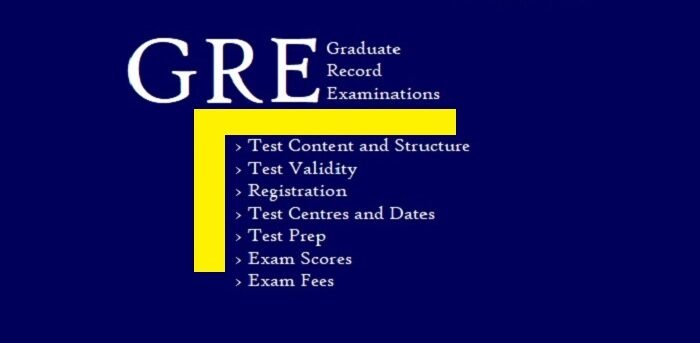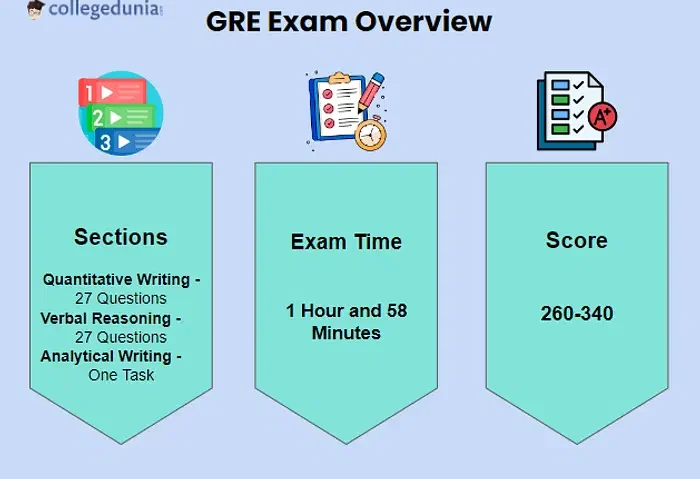Introduction:
GRE – Graduate Record Examination is a standardized test conducted by ETS (Educational Testing Services). The GRE scores are accepted by most of the top graduate-level schools worldwide for the Master’s degree program. Getting an advanced degree from a college abroad can create a lot of opportunities and pay in higher earnings and lower unemployment rates. If you plan to pursue a postgraduate degree from an internationally acclaimed university, GRE is your gateway. It comprises two test formats GRE General and GRE Subject test. While a GRE general test covers topics like verbal reasoning, analytical writing, and quantitative reasoning, the GRE subject test involves topics specific to the subject in which you want to pursue postgraduation.
Embarking on the journey of preparing for the GRE Exam feels like setting out on an adventure, especially when enrolled in The Proton Academy. With its comprehensive curriculum and expert guidance, navigating the intricacies of the GRE becomes an exciting exploration of knowledge and skills.
GRE What is the GRE General test all about?
The GRE General Test helps to get admission to graduate schools like business or law schools and it’s a smart move to show schools that you are the best candidate. The GRE General Test features questions that reflect the kind of thinking that a candidate possesses. It covers questions from three major topics such as:
Verbal Reasoning: It measures the ability to analyze and draw conclusions from disclosure and reason from incomplete data. The applicant should understand multiple levels of meaning such as literal, figurative, and author’s intent. To summarise the text and distinguish major from minor points, understand the meaning of words, sentences, and entire texts. To understand relationships among words and concepts.
Quantitative Reasoning: It measures the ability to understand, interpret, and analyze quantitative information. To solve problems using mathematical models and apply basic concepts of arithmetic algebra, geometry, and data analysis.
Analytical Writing: It measures critical thinking and analytical writing skills such as articulation which could support complex ideas with relevant reasons and examples.

1. GRE – Test Content and Structure:
The GRE General Test measures verbal reasoning, quantitative reasoning, critical thinking, and analytical writing skills which have developed over a long period and are not related to any specific topic. The test is important to all. In this section, we will describe in detail the required skills tested in the examination.
2. Verbal Reasoning – GRE:
The verbal reasoning section measures the ability to analyze and evaluate written material and extract information, analyze relationships among parts of sentences, and recognize relationships among words and concepts. The verbal reasoning section contains mainly three types of questions:
a. Reading comprehension
b. Text completion
c. Sentence equivalence.
a. GRE – Reading Comprehension:
It is designed to test a wide range of abilities that are required to read and understand the kinds of prose commonly encountered in graduate schools. The applicants will need to understand the meaning of individual words and sentences, the meaning of paragraphs and large bodies of texts, the distinction between minor and major parts, and the passage summarisation. The applicants should be able to conclude from the information provided, reason from incomplete data to infer missing information, understand the structure of a text in terms of how the parts are related to one another, and identify authors’ assumptions and perspectives. They should be able to analyze a text and reach conclusions, identify the strengths and weaknesses of a position, and develop alternative explanations.
b. GRE – Text Completion:
The applicants should not simply extract the information presented on the page but maintain a constant attitude of interpretation and evaluation and should be able to reason from what they have read so far to create a picture of the whole and revise the picture as they go. This tests the applicant’s ability of how they would omit crucial words from short passages and the test taker should use the remaining information in the passage and form it as the basis for selecting words to fill blanks and create a coherent meaning.
c. GRE – Sentence Equivalence:
The question in this section tests the ability of the exam takers they conclude a passage based on partial information. It consists of single-sentence questions with just one blank. You need to find two choices that lead to a complete coherent sentence. The structure of the question consists of a single sentence, one blank, and six answer choices and requires the applicant to select two of the correct answer choices.
3. GRE – Quantitative Reasoning:
The quantitative reasoning section of the GRE General Test assesses:
Mathematical skills
Understanding of elementary mathematical concepts
Ability to answer quantitatively to model and solve problems with quantitative methods
Some of the questions are posed in real-life settings while others are posed in mathematical settings. The skills, concepts, and abilities are assessed in four content areas:
Arithmetic: The topics under this section include properties, and types of integers such as divisibility, factorization, prime number, remainders, and odd-even integers. There are also other areas like arithmetic operations, exponents, roots, and concepts such as estimation, percent, ratio rate, absolute value, number line, decimal representation, and sequence of numbers.
Geometry: The topics in this section include parallel and perpendicular lines, circles, triangles such as isosceles, equilateral, 30-60-90 degree triangles, quadrilaterals, polygons, congruent figures, etc.
Algebra: The topics include factoring, simplifying algebraic expressions, functions, equations, quadratic equations, simultaneous equations, inequalities, etc.
Data Analysis: Several topics are covered under descriptive analytics such as mean, median, mode, range, standard deviation, quartiles, and interpretation of data in tables and graphs such as line graphs, bar graphs, etc. This also includes elementary probability such as the probability of compound events, probability distribution, normal distribution, and counting methods such as combination, Venn diagrams, etc.
4. GRE – For Business Schools:
Business schools are using GRE scores as a part of their admission process for MBA, specialized masters, and other business programs. The GRE General Test is a widely accepted measure to test a student’s preparedness for starting graduate-level work. It features a flexible test-taker test-taker-friendly design which is a better experience for the applicants. Once you have qualified for the GRE General Test, then you can do the following:

5. GRE – Exam Fees:
The GRE Fee is charged in US dollars and is subject to change without notice. You can check out the list below that highlights the fee for the standard test administration of the GRE General Test.
6. GRE – Test Validity:
ETS ensures fairness and validity of GRE tests through test development, administration, and scoring processes. It has developed a system of internal checks and balances and audit teams to verify all tests and services so that they meet professional standards.
The reviewers are trained and routine analysis of test questions is conducted to establish there are no unfair differences in the group of questions. All the persons involved in the development or scoring of test questions are trained to ensure that all examinees have a similar opportunity to show their skills. The validity research and analysis team measures what is supposed to be measured in the GRE test. The GRE program documents the following types of validity: construct validity, content validity, predictive validity, consequential validity, and external validity.
7. GRE – Registration, Test Centres and Dates:
Firstly, the applicants need to create an ETS account to further register for the GRE General Test. The name you use when you register and the spelling of that name must match exactly with the names printed on the identification documents which you shall present on the day of the GRE test. You need to review the acceptable forms of ID on the ETS website.
8. GRE – ETS Registration:
Follow the steps below to create the ETS account:
Visit the web page here and select the ETS account button on the upper right corner of the page.
On the ETS account login page, click the Create an Account button.
Creating the account will allow you to register for the GRE General Test, apply for testing accommodations, view, change, or cancel the registration, purchase test prep materials, view scores, access free GRE diagnostic tests, etc.
Provide information on name, date of birth, gender, email ID, address, phone number, communication preferences, etc.
Create a password and a security question and proceed to the next step.
Submit the form to create the account.
Now the applicants can proceed to register:
9. GRE – Test Prep:
GRE General Test conducted by ETS offers a variety of free and low-cost tools to help the students prepare for the test. The free and official preparation materials for the GRE test available for purchase can be checked here.
10. GRE – GRE Exam Scores:
The score report contains the following information
Contact details
Date of birth, gender, intended a graduate major
Test dates
GRE test score and associate percentile ranks
Authorized score recipients and a cumulative record of scores reported within the last five years.

Understand the scores of the GRE General Test:
Scores range from 130-170 for verbal reasoning and quantitative reasoning at one-point increments and 0 to 6 for analytical writing with half-point increments. If applicants do not answer at least one question within a measure, a no score is reported.
The scores from different General Test measures are not compared because each measure is scaled separately. The percentile ranks provided on the score report are used to compare relative performance among all measures.
The computer-driven GRE General Test (verbal and quantitative reasoning) score reflects the number of questions answered correctly and the difficulty level of each section. In the analytical writing section, each essay receives a score from one trained reader using a six-point scale. The essay is scored by the e-rater scoring engine, a program developed by ETS that is capable of identifying essays related to writing proficiency.
The paper delivered the GRE General Test verbal and quantitative reasoning measure score report is based on the number of questions answered correctly and each essay receives a score from two trained readers.
GRE – Percentile rank
GRE Exam scores are reported with a corresponding percentile rank. A percentile rank for a score indicates the percentage of examinees who took the test and obtained a lower score. The percentile ranks are based on the scores of all examinees who attempted the examination within the recent time frame.
FAQs:-
1. What is the full form of the GRE?
The full form of the GRE is the Graduate Record Examination.
2. What is the highest I can score on the GRE?
The highest possible score on the GRE is 340 and the lowest possible score is 260
3. What are the mean scores for GRE Verbal Reasoning and Quantitative Reasoning?
The mean scores for GRE Verbal Reasoning and Quantitative Reasoning are 151 and 153 respectively.

Conclusions:
Embarking on this exhilarating journey through the GRE at Proton Academy not only prepares students for academic success but also instills valuable skills and confidence to conquer future challenges. With its holistic approach to GRE preparation, Proton Academy ensures that every student emerges from this adventure ready to excel on test day and beyond.

